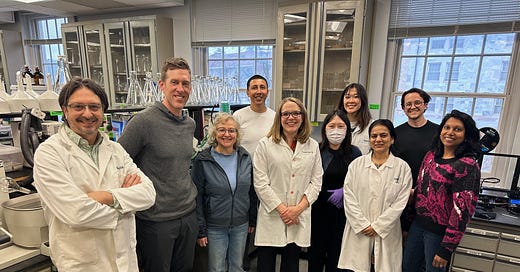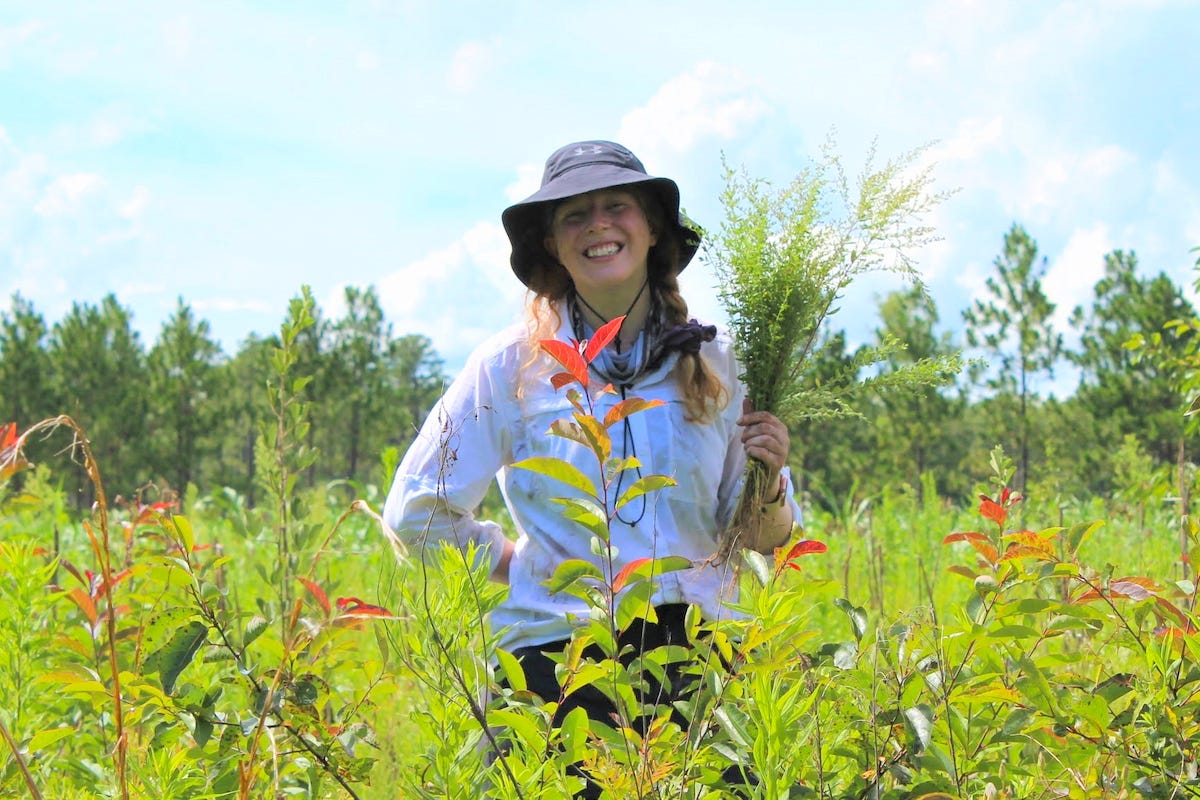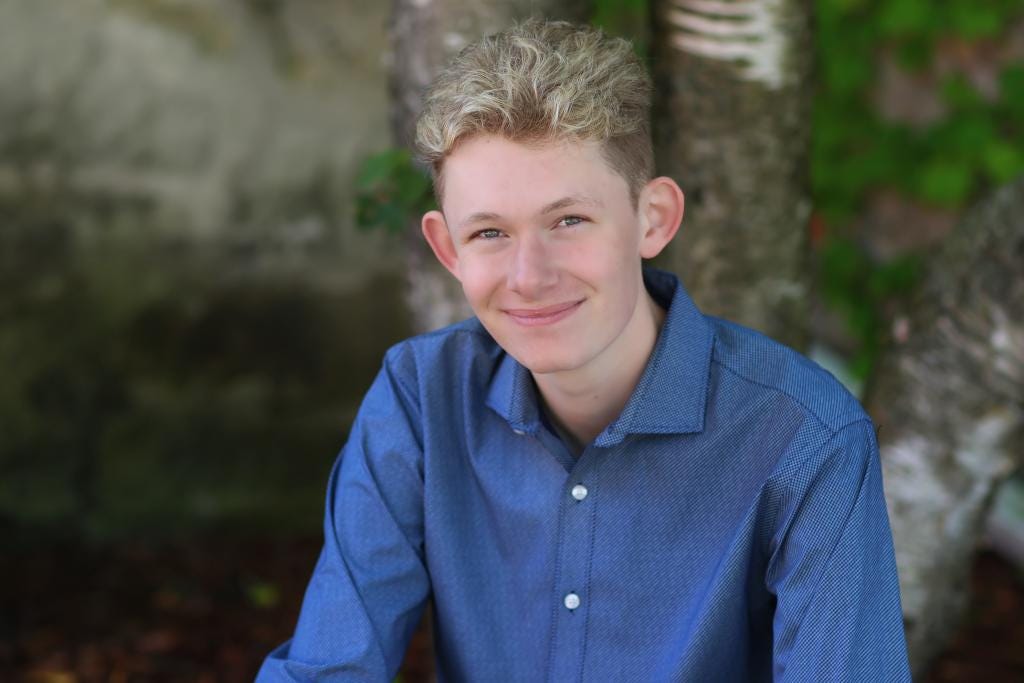Emory Commencement & CNN Champions for Change
I share some exciting news for the upcoming week.
Hello dear readers! I have a very busy week ahead and some exciting news to share!
CNN Champions for Change
I’m proud to be included among the 12 inspirational individuals selected for CNN’s Champions for Change program! Here’s a highlight from the press release:
Beginning Saturday, May 11, CNN’s Champions for Change programming will spotlight the extraordinary stories of pioneers who are driving us towards a brighter future and changing the world. Profiles in grit, creativity and innovation will be highlighted on air and across CNN’s digital platforms throughout the week, culminating in an hour-long special hosted by CNN Chief Medical Correspondent Dr. Sanjay Gupta on Saturday, May 18 at 9pm ET.
Featuring reporting from Dr. Gupta, CNN Anchor and Chief Legal Analyst Laura Coates, CNN Correspondent Omar Jimenez, CNN Anchor and Senior National Correspondent Sara Sidner, and CNN Chief Climate Correspondent Bill Weir, Champions for Change returns
for its eighth year showcasing inspiring changemakers.
Important dates:
My story should air this Saturday, May 11th between 5-6 PM ET on CNN unless there is any breaking news at that time.
The primetime special event hosted by Dr. Sanjay Gupta will air on Saturday, May 18 at 9 PM ET, and this will feature the stories of all 12 champions.
View the trailer here:
Emory Commencement
On Friday, I’m honored to participate in the Emory Laney Graduate School doctoral hooding ceremony for Dr. Caitlin Risener, who completed her PhD in my lab this year. Caitlin’s research focused on the study of wild medicinal plants in the search of new molecules to combat SARS-CoV-2, the virus responsible for COVID-19. You can read her main research findings here or the press release on her work here.
On Saturday, I’m thrilled to offer the commencement address for Emory’s Oxford College. As a special perk for my paid subscribers, I’ve included my working draft of the speech below behind the paywall. I’d love your feedback as I make the final edits!
On Sunday, I have the privilege of bestowing Emory undergraduate and Garden Club of America Zeller Summer Scholar in Medicinal Botany Ben Kittleson with his special graduation regalia cord denoting his achievement of earning Highest Honors in Biology (Magna Cum Laude) for his independent research on medicinal plants with activity against acne. We expect to publish his scientific paper later this year.
Join me in congratulating the graduates!
Read on to get a sneak peek at my commencement address draft for this Saturday.
Yours in health, Dr. Quave
Good afternoon and congratulations on reaching this exciting moment in your educational journey! Commencement is a time for reflection on the path you have traveled thus far, and a time to dream about the next part of your journey. Anyone can be a dreamer, but very few are dreamers and doers. Today, I want to share with you a story of a dreamer and a doer who brought forward a vision of a holistic education on nature and conservation to both the Emory Atlanta and Oxford campuses.
I first learned of Dr. Bill Murdy’s work at Emory 12 years ago when I took on the role of Curator of the Emory Herbarium. An herbarium can best be described as a library of life. It is a natural history museum that houses tens of thousands of dried, pressed plant specimens that have been pasted to paper with details on the location and date of their collection. The Emory Herbarium is supported by a dedicated team of research staff and students who aim to advance botanical research and education locally and globally through physical and digital resources. This year, the Emory Herbarium celebrities its Diamond Anniversary of 75 years!
The oldest herbarium specimens in the world are in Rome and were created an astonishing 500 years ago! If you’ve ever wondered what the first Italian marinara sauce might have tasted like, we can tell you exactly which varieties of tomato arrived in Italy from the Americas thanks to herbarium specimens collected by a scholar from the 1500s. Earlier this month, scientists published a brand new tree of life for flowering plants based on the DNA sequences of nearly ten thousand plants, including 200-year old herbarium specimens. This study revealed how and when a boom in flowering plant diversification emerged millions of years ago during the time that dinosaurs roamed this earth. Herbarium specimens continue to reveal new secrets about our past and inspire new discoveries for the future.
Who was Dr. Murdy and what was his connection to the Emory herbarium? He was a botanist who held many titles at Emory, including professor of Biology, two-term Chair of Biology, Director of the Emory Herbarium for 16 years, and then the Dean of Oxford College for 12 years. Some of you may be familiar with his name from the dorm on Oxford campus, Murdy Hall. Dr. Murdy was a passionate advocate for not only protecting our natural environment, but also offering students opportunities for a robust liberal arts education featuring lessons on botany and the environment. In a 1986 report on the status of Emory’s forested lands, Murdy noted that “Providing students with a sound ecological perspective on the world should be an essential part of any liberal arts curriculum.”
Twenty-five years after his retirement and a decade after his death, his words continue to hold true.
We live in an unprecedented time in human history. As a species, we have achieved incredible technological marvels that have revolutionized the speed and variety of ways that we communicate, travel, learn, and work. At the same time, I would argue that we are more disconnected from each other and from nature than ever before.
Humans were never meant to be separate from nature. Indeed, throughout human history, we have always been part of nature. And yet, most of us can no longer name the trees and shrubs we see in the forest or recognize the plant sources of common fruits and vegetables. We no longer spend our walks outdoors listening to nature’s symphony—the delightful harmony of birdsong or buzzing of insects—but rather drown out the music of the world with digital music delivered through our smartphones into earbuds, experienced alone in solitude from nature and each other. We no longer look up and around at the creatures we encounter who should be regarded with awe and wonder. Instead, our eyes are glued to handheld screens where we swipe through 20 second videos, one mindlessly streaming after the other. While portable technologies bring us so many gifts, they also rob us of opportunities to truly live, to develop real relationships with nature and with other people.
Plants are essential to human survival. They provide our food, materials for clothing and construction, medicines, and the very air we breathe. As a medical ethnobotanist, I am fascinated with the healing properties of plants. All of us have benefited from nature’s pharmacy at one point in our lives—whether with an aspirin to treat a fever, pseudoephedrine to relieve sinus congestion, or salicylic acid to treat acne—we have all used medicines first discovered in plants. Last year, my dad’s life was saved from an aggressive cancer thanks to the gifts of a molecule discovered in the Madagascar periwinkle. I’ve met many women whose lives were saved from breast cancer thanks to a molecule discovered in the yew tree! Incredibly out of the 400,000 plants found on Earth today, roughly 35,000—or 9% of all plant life—has been documented as being used in medical therapies by different cultures around the world. Scientists have only barely begun to scratch the surface of investigating these healing plants. We have much work to do, and to do quickly, as many of these species are at risk of being lost before they can ever be studied.
Beyond the importance of plants as sources of lifesaving medicines, nature has so much more to offer to each of us. Indeed, simply spending time in nature is good for your health. In Japan, the practice of Shinrin-yoku, or forest bathing—that simple and healing practice of spending time in the forest while intentionally engaging your senses—has demonstrated both psychological and physiological health benefits in scientific studies. Researchers note that the practice of forest bathing results in improvements in immune function, decreases in blood pressure and stress responses, as well as improved mental relaxation and decreases in mental health conditions such as depression, anxiety, grief, isolation, and anger. Forest bathing is something that anyone can do anywhere as long as you have access to nature. All that it requires is that you fully engage—leave those portable devices behind or in silent mode—and listen, feel, smell, touch, and look around with the intention to familiarize yourself with the environment.
We are so lucky to have access to gorgeous and richly biodiverse forests at Emory, thanks in large part to Dr. Murdy’s advocacy in protecting them. In a report on Emory forests, he noted that “The future well-being of the human species will hinge on the depth of our understanding of the natural resources which provide our most basic needs, and on the depth of our commitment to responsible stewardship of these resources.”
You may be alarmed with the challenges arising due to climate change and biodiversity loss, and it is right to be alarmed. Across the globe, many plants and their ecosystems are in danger of disappearing forever. A recent report by the Royal Botanic Gardens, Kew noted that an estimated 45% of all flowering plants are at risk of extinction. This is driven not only by a changing climate, but also by conversion of lands for large scale agriculture and urban expansion to accommodate our growing global population which has surpassed 8 billion people.
These figures may leave you feeling overwhelmed, or even hopeless in the face of this change. But there is hope. There is a path forward. Don’t give up. You can be a big part of innovating solutions for the future! Like Dr. Murdy, you can be a dreamer and a doer. In his words, “This experience in understanding natural systems is essential to the liberal education of those citizens who will make critical societal decisions in the future.” You, dear students, are the societal decision makers of tomorrow.
No matter our culture, language, or religion, we all share a common human desire to live a better, more fulfilling life. As humans, we all find joy in connections with nature and each other. It is essential to our well-being. So, how can we be better stewards of our planet and protect nature’s treasures for our present and our future? How can each of you be a part of the change?
This is not something limited to science majors—while we certainly need scientists of the future who can track biodiversity, develop conservation measures, seedbank and breed new crops, discover new medicines, and study how plants and ecosystems adapt to a changing climate—we also need artists, poets, musicians, and authors who can create the art, sounds, and stories that help us express our feelings and inspire change at home and abroad. We need psychologists and sociologists who can study the human-nature interface and develop plans that foster societal resilience in difficult times. We need economists and business leaders who can create models and forge paths for economic growth that is sustainable, equitable, and comes without the cost of harm to the planet. We need anthropologists and linguists who can help translate discoveries and a united vision for the protection of our planet and people across the barriers of language and culture. We all have a role to play. After all, planetary health and human health are intricately connected—we can’t have one without the other. We can all be part of the solution. Indeed, to support a bright future, we all must be part of the solution.
I want to leave you with this quote from Walt Disney, “All our dreams can come true, if we have the courage to pursue them." As you prepare for the next steps in your educational journey, heed these words: Have courage. Cultivate hope. Celebrate creativity. Be kind to yourself and each other. Respect, connect, and care for nature.
I am proud of you. I believe in you. I know will do great things in the years ahead. Be the dreamers and the doers that the world needs now more than ever. The health of our planet, our species, is in your hands.








Fantastic speech! I, of course, especially love that you mentioned the human-nature connection and later, as part of your closing, urged the graduates to stay close to nature and take care of her. Yay! I also really appreciated that you said not only scientists are needed, that all fields can contribute and have something of value to offer. Brava!
🤩 So many congratulations in order here! Please do post a link to the CNN segment when it airs, and the commencement speech sounds perfect! Exciting times for you and your work, and for being a scientist, advocate for conservation, and educator.